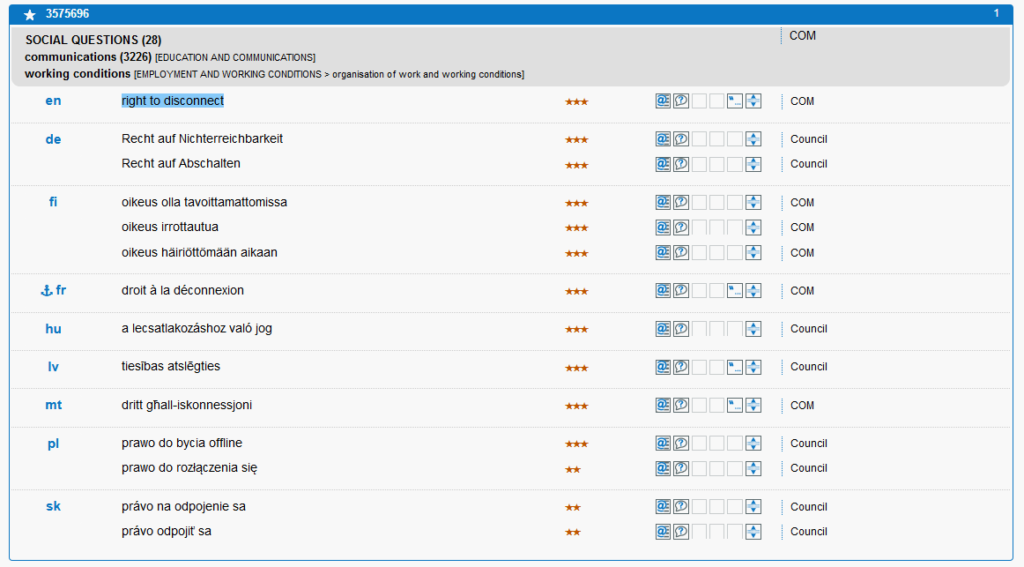As the global health crisis, caused by the coronavirus outbreak, keeps changing the ways we live and work, the European Parliament stands up for remote workers’ rights.
COVID-19 forced both public and private sectors to quickly overcome the technological and cultural barriers regarding remote work. According to Eurofound’s survey from July 2020, 48% of employees experienced teleworking, and over a third of them performed their duties exclusively from home.1 Although remote work may be a positive experience, it poses many risks for mental and physical well-being. Parents with young children, people without a suitable workspace, and those doing overtime have found themselves in a challenging situation. The emotional overload and feelings of isolation and anxiety often lead to burnout and depression. Teleworkers are also in danger of specific health conditions like eyestrain, ergonomic injuries, muscle tension, headaches, and sleep disorders.
The topics of healthy work-life balance and the employee’s right to uninterrupted time off are not new. The discussion on the right to disconnect, fostered by the developments in communication technologies, has also been present in public debates before. How do we define it? According to Eurofound, the right to disconnect is ‘a worker’s right to be able to disengage from work and refrain from engaging in work-related electronic communications, such as emails or other messages, during non-work hours’. Some member states’ legal systems had already considered this issue, but in pandemic times, the need for general European legislation arose. It initiated the legislative process behind the new right to disconnect – a regulation adjusted precisely to current social and technological circumstances.
The initiative had been discussed in the Committee on Employment and Social Affairs in December 2020 and approved by the Parliament in a vote at the last plenary session. During the debates, politicians underlined the negative aspects of remote working. MEP Alex Agius Saliba, the main rapporteur behind the legislative, said: ‘The pressure to be always “on”, always reachable, is growing as the boundaries between private life and work-life are increasingly becoming blurred’.2 MEP Sara Matthieu added, that ‘the pressure of permanent availability brings mental and physical suffering’.3 What specific measures did the Parliament call for?
- Employers should not require workers to be available outside their working time and co-workers should refrain from contacting colleagues for work purposes.
- EU countries should ensure that workers who invoke their right to disconnect are protected from victimisation and other repercussions and that there are mechanisms in place to deal with complaints or breaches of the right to disconnect.
- Remote professional learning and training activities must be counted as work activity and must not take place during overtime or days off without adequate compensation.4
It is now up to the Commission to introduce standards for remote work in Europe.

IATE goes AUDIO provides short audio clips in different languages explaining IATE Terms of the Week in a clear and concise manner. The aim of this initiative is to make IATE terminology accessible to a wider audience.
This week, you can tune in to another IATE goes Audio feature: click below to listen to ‘Right to Disconnect’ explained in English.
References:
Eurofound. 2021. COVID-19 unleashed the potential for telework – How are workers coping? [ONLINE] Available at: https://www.eurofound.europa.eu/publications/blog/covid-19-unleashed-the-potential-for-telework-how-are-workers-coping. [Accessed 10 February 2021].
Eurofound. 2021. Right to disconnect | Eurofound. [ONLINE] Available at: https://www.eurofound.europa.eu/observatories/eurwork/industrial-relations-dictionary/right-to-disconnect. [Accessed 10 February 2021].
Eurofound. 2021. Living, working and COVID-19 | Eurofound. [ONLINE] Available at: https://www.eurofound.europa.eu/publications/report/2020/living-working-and-covid-19. [Accessed 10 February 2021].
European Parliament. 2021. Parliament wants to ensure the right to disconnect from work [ONLINE] Available at: https://www.europarl.europa.eu/news/en/headlines/society/20210121STO96103/parliament-wants-to-ensure-the-right-to-disconnect-from-work. [Accessed 10 February 2021].
EUobserver. 2021. MEPs call for workers to have ‘right to disconnect’. [ONLINE] Available at: https://euobserver.com/social/150701. [Accessed 10 February 2021].
Newsbook. 2021. MEP Agius Saliba’s report on the right to disconnect approved by EP committee. [ONLINE] Available at: https://newsbook.com.mt/en/mep-agius-salibas-report-on-the-right-to-disconnect-approved-by-ep-committee/. [Accessed 10 February 2021].
The Brussels Times. 2021. MEPs to vote on workers’ right to disconnect. [ONLINE] Available at: https://www.brusselstimes.com/news/eu-affairs/150509/meps-to-vote-on-workers-right-to-disconnect-employment-social-rights/. [Accessed 10 February 2021].

Written by Magdalena Sikorska. She holds a Bachelor in Italian Language and Literature as well as master’s degrees in Journalism and Social Communication and Polish Philology.


